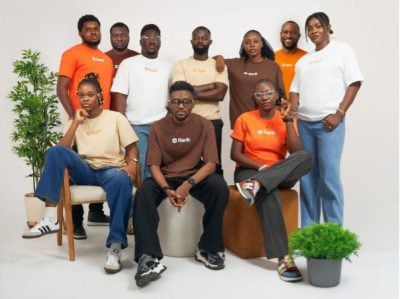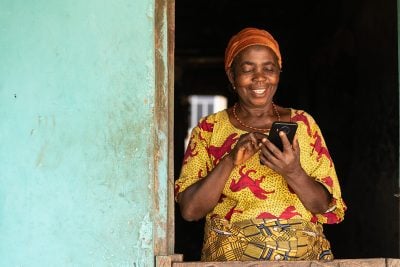Artificial intelligence is advancing at a speed unprecedented in previous technological revolutions. According to the World Bank’s Digital Progress and Trends Report 2025, AI is transforming global value creation, workforce demand, and innovation ecosystems at scale, yet its benefits are unevenly distributed. High-income economies dominate AI innovation, compute capacity, and startup activity, while most low- and middle-income countries, including those in Africa, remain primarily consumers rather than creators.
The report also highlights an emerging opportunity: “small AI,” which refers to localized, cost-effective, and highly relevant AI applications that do not require frontier-level computing. Africa’s rapidly growing digital population, youthful workforce, and vibrant tech ecosystems make the continent particularly well-positioned to seize this opportunity. For African startups, investors, and policymakers, the message is clear: strategic investments in the foundational “4Cs”—Connectivity, Compute, Context, and Competency—will determine the continent’s AI trajectory.
The first frontier for scalable African AI
Connectivity is the gateway to AI participation. Despite gains in mobile network coverage, significant gaps remain in internet access, affordability, and speed. In low-income countries, only around 4% of the population has access to 5G, and broadband remains unaffordable for many households.
This presents several investment opportunities. Satellite internet and non-terrestrial networks, for example, are expanding rapidly, with a fourteenfold increase in commercial satellites since 2015, most in low-earth orbit, offering a chance to reach rural and remote communities. Last-mile connectivity solutions, including fixed wireless alternatives, community networks, and micro-ISPs, provide further entry points for startups and investors. Affordable device financing, such as pay-as-you-go smartphones and shared-access digital hubs, can accelerate AI adoption. Connectivity is the base layer on which African AI applications in agriculture, logistics, education, and telehealth depend. Supporting infrastructure-adjacent innovations will unlock the potential for scalable AI across the continent.
Cloud, chips, and data centres as the new economic backbone
Compute has become the “new electricity” of the AI era. High-performance computing, GPUs, and data centres are overwhelmingly concentrated in high-income countries, with 86% of top HPC systems located in rich economies and almost none in low-income countries. Africa risks falling behind if compute access remains scarce or expensive.
However, the report identifies multiple viable pathways. Regional data centres and green HPC infrastructure, supported through co-investment models or public-private partnerships, could position hubs in Kenya, South Africa, Morocco, and Nigeria as regional providers. Cloud brokerage and optimisation startups can help enterprises manage costs and access subsidised compute. GPU-as-a-service platforms that pool computing capacity offer startups scalable on-demand access, while AI edge computing solutions for agriculture, manufacturing, and health can reduce cloud reliance in bandwidth-constrained markets.
Africa does not need to build all compute domestically. A hybrid approach, combining partial domestic capability with structured cloud imports, could accelerate accessibility while reducing dependency risks.
Local data as Africa’s AI gold
AI performance relies on high-quality, representative, and culturally relevant data. Yet global training data remains dominated by English-language content, leaving Africa—with its 2,000+ languages and diverse socio-economic contexts—underserved. This gap represents a unique opportunity.
Startups focused on African language data collection and labelling, including for Swahili, Yoruba, Hausa, Amharic, and regional Arabic dialects, are essential. Sector-specific datasets such as agricultural imagery, privacy-compliant fintech transaction records, health diagnostics, and mobility data are in high demand. Secure data marketplaces, privacy-preserving platforms, and open-source African AI models tailored to local needs, from agricultural disease detection to educational tutoring, offer scalable potential. Local data combined with local models can produce differentiated, defensible AI products and help Africa avoid reliance on biased or inaccurate global systems.
Africa’s fastest-growing AI asset
Digital skills adoption has increased across all occupations, with the fastest growth in mid- and low-skill jobs. AI job postings are rising more quickly in middle-income countries than in high-income ones, signalling a turning point: Africa can become a global supplier of AI talent, not merely a consumer.
Investment opportunities include AI talent accelerators and training academies, bootcamps focused on generative AI integration, prompt engineering, data labelling, and cloud engineering. AI-enabled outsourcing platforms can allow Africa to compete in global digital services markets, while corporate upskilling solutions can integrate AI training into enterprise workflows. The most pressing talent gaps are in practical AI integration skills rather than advanced research, meaning African youth can rapidly gain competitive advantage with the right programmes.
Africa’s fastest route to impact
One of the report’s most significant insights for developing economies is the rising relevance of small, localised, compute-light AI solutions. These require less computing power and can run on edge devices or mid-tier cloud infrastructure, making them ideal for African markets. High-potential applications include crop disease detection and soil analytics in agriculture, fraud detection and alternative credit scoring in fintech, AI triage and supply chain optimisation in healthcare, localised educational tutors and assessment tools, and automation solutions for small and medium-sized enterprises.
This shift lowers the barrier to entry for African founders and broadens the investment pipeline.
The World Bank report emphasises that the AI revolution will not wait, but Africa is not locked out. By strategically investing in the 4Cs, the continent can leapfrog traditional barriers and develop AI systems tailored to local needs and realities. For investors, founders, and policymakers, the opportunity lies not in chasing frontier AI, but in building the infrastructure, data ecosystems, and talent pipelines that power meaningful African innovation. Africa’s AI moment has arrived, and those who act now will shape its future.
Want to continue reading? Subscribe today.
You've read all your free articles for this month! Subscribe now to enjoy full access to our content.
Digital Monthly
£8.00 / month
Receive full unlimited access to our articles, opinions, podcasts and more.
Digital Yearly
£70.00 / year
Our best value offer - save £26 and gain access to all of our digital content for an entire year!


 Sign in with Google
Sign in with Google 



